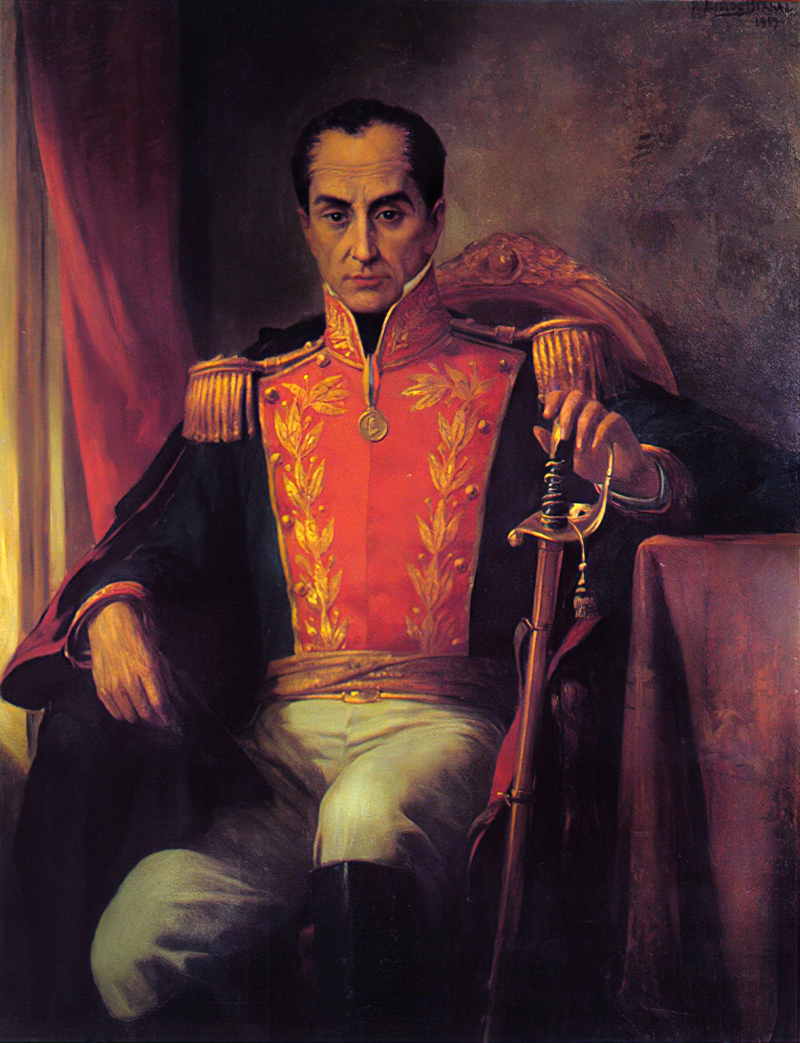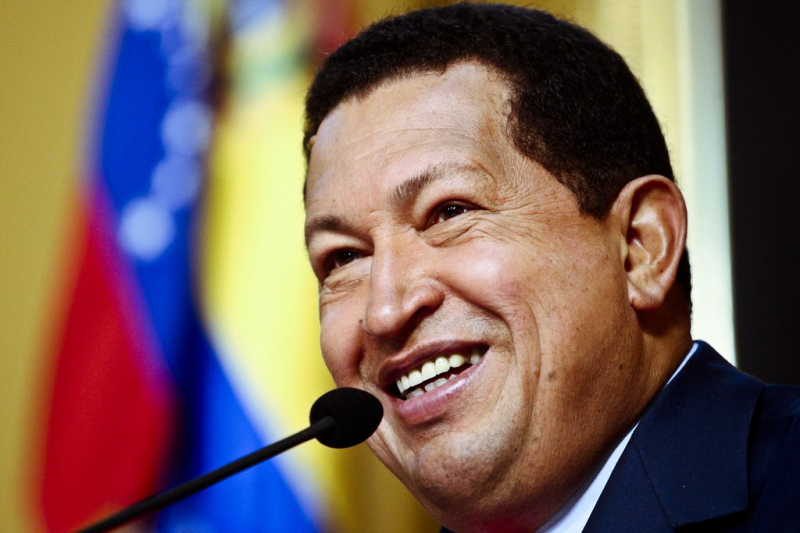Hugo Chávez identified his political viewpoint as Bolivarianism
Hugo Chávez identified his political viewpoint as Bolivarianism, which he derived from Simón Bolvar (1783-1830) and others. Bolivar was a 19th-century general who led the fight against colonialist Spanish authorities and is still greatly regarded throughout Latin America. Simón Rodrguez (1769-1854), a philosopher who was Bolvar's tutor and mentor, and Ezequiel Zamora (1817-1860), a Venezuelan Federalist commander, were the other two key influencers for Bolivarianism, in addition to Bolvar. In his study of Chávez's politics, political analyst and Chávez supporter Gregory Wilpert noted that "the key ingredients for Chávez's revolutionary Bolivarianism can be summarized as an emphasis on the importance of education, the creation of civilian-military unity, Latin American integration, social justice, and national sovereignty." In many ways, this is no different than any other Enlightenment or national liberation thinker's set of ideals and beliefs."
The claim that Chávez's worldview was influenced by Bolvar has also been criticized because Chávez had previously portrayed himself as being influenced by Karl Marx, an opponent of Bolvar. "Describing Bolivar as a socialist warrior in the class struggle, when he was actually a member of the aristocratic 'criollos', is peculiar when considering Karl Marx's own writings on Bolivar, whom he dismissed as a false liberator who merely sought to preserve the power of the old Creole nobility which he belonged", Beddow and Thibodeaux wrote.









